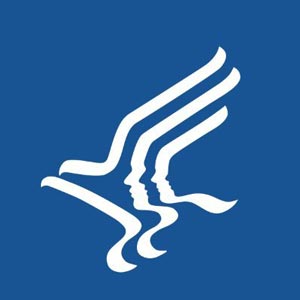Action supports Biden-Harris Administration’s first-ever U.S. National Strategy to Counter Antisemitism and its broader work to counter hate of all kinds
January 27, 2024 - On Thursday, the Office for Civil Rights (OCR) at the U.S. Department of Health and Human Services (HHS) is issuing  guidance to U.S. hospital and long-term care facility administrators, reminding organizations of their independent obligations under Centers for Medicare and Medicaid Services (CMS) regulations to ensure that facility visitation policies, including during a public health emergency, do not unlawfully discriminate on the basis of religion; as well as their obligation not to discriminate on other protected bases under federal civil rights laws, against patients or other individuals receiving care. HHS committed to providing this guidance as part of the Biden-Harris Administration’s first-ever U.S. National Strategy to Counter Antisemitism - PDF.
guidance to U.S. hospital and long-term care facility administrators, reminding organizations of their independent obligations under Centers for Medicare and Medicaid Services (CMS) regulations to ensure that facility visitation policies, including during a public health emergency, do not unlawfully discriminate on the basis of religion; as well as their obligation not to discriminate on other protected bases under federal civil rights laws, against patients or other individuals receiving care. HHS committed to providing this guidance as part of the Biden-Harris Administration’s first-ever U.S. National Strategy to Counter Antisemitism - PDF.
“All Americans must be free practice their faith and live their lives without fear of attack or harassment. At OCR, we are taking steps to ensure that the religious needs of patients and other individuals are met when they receive care from hospitals and long-term care facilities,” said OCR Director Melanie Fontes Rainer. “These actions support the Biden-Harris Administration’s ongoing efforts to prioritize equity and nondiscrimination, and this includes guaranteeing religious accommodations for those seeking health and human services.”
Under CMS regulations, hospitals, long term care facilities, and critical access hospitals, are prohibited from restricting, limiting, or otherwise denying visitation privileges on the basis of race, color, national origin, religion, sex, gender identity, sexual orientation, or disability and are required to have written visitation policies, procedures, and practices regarding such prohibitions. OCR enforces the bar on religious discrimination in these regulations.
Civil rights laws also prohibit discrimination on the basis of race, color, national origin, sex (including sexual orientation and gender identity), age, and disability in certain federally funded programs and activities. These laws may also prohibit restrictions on visitation in some circumstances. To help health care facilities understand their obligations, OCR is providing guidance titled FAQs on Patient Visitation at Certain Federally Funded Entities and Facilities. This guidance provides examples demonstrating the importance of considering the religious needs of patients and other individuals when implementing visitation policies and procedures. For instance, this guidance discusses examples of concerning fact patterns such as:
- Hospitals prevented family members from bringing patients Kosher food or halal food that met the patient’s religious dietary restrictions while allowing other visitors to bring patients food items.
- Members of certain religious groups were subjected to more rigorous screening processes and/or denied opportunities for visitation based on the patient’s and/or visitor’s religious affiliation.
- Hospitals adopted policies during the COVID-19 pandemic that allowed patients to visit with family members or friends but prohibited them from visiting with clergy.
This guidance also contains information to help covered facilities and entities effectively communicate with patients and others regarding their visitation policies, procedures, and practices.
OCR is committed to helping hospitals, long-term care facilities, and critical access hospitals comply with these CMS regulations prohibiting religious discrimination as well as discrimination on other bases, and ensuring that their visitation policies, procedures, and practices are compliant. OCR is available to provide technical assistance to hospitals or facilities in meeting their legal obligations.
If you believe that your or another person’s civil rights have been violated, you can file a complaint with HHS at: https://www.hhs.gov/ocr/complaints/index.html.
Today’s announcement builds on HHS’s other actions under the National Strategy to Counter Antisemitism. Actions include:
- In September, HHS joined seven other federal agencies in clarifying, for the first time in writing, that Title VI of the Civil Rights Act of 1964 prohibits discrimination based on shared ancestry or ethnic characteristics, including certain forms of antisemitic, Islamophobic, and related forms of discrimination and bias, in federally funded programs and activities. HHS continues to take other steps to raise awareness of Title VI and other civil rights laws—both among entities that are prohibited from discriminating in these ways, and by informing communities of their rights to be free from discrimination. For example, HHS translated its information about Title VI into Arabic, Hebrew, Punjabi, Spanish, Urdu, and Yiddish.
- HHS continues to offer trainings on HHS’s antidiscrimination laws to medical schools nationwide to train future health care providers. In 2023, HHS offered twelve trainings with 925 students participating.
- The Administration for Community Living continues to support Holocaust survivors by helping to ensure they receive person-centered trauma care. Since 2015, ACL and the Center on Holocaust Survivor Care have served over 43,700 Holocaust survivors and trained more than 7,300 of their family caregivers. These efforts help provide Holocaust survivors with the care they need to thrive.
- HHS has held listening sessions with Jewish and Muslim chaplains on religious discrimination in healthcare settings. This expanded engagement with chaplains and leaders from multiple faiths promotes increased cultural and religious competence in healthcare settings, including through multifaith partnerships.
- The Substance Abuse and Mental Health Services Administration (SAMHSA) created a toolkit - PDF of resources for those working with and supporting individuals and communities emotionally impacted by the recent escalation of conflict between Israel and Hamas.
- HHS is joining numerous other agencies in marking International Holocaust Remembrance Day (January 27).
- HHS launched a digital campaign led by members of the President’s Council on Sports, Fitness & Nutrition to encourage the public to share personal stories of how activities like sports or cooking have promoted connection, inclusion, and cross-community solidarity.
Source: HHS








